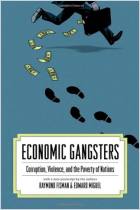Зарегистрируйтесь на getAbstract, чтобы получить доступ к этому краткому изложению.

Зарегистрируйтесь на getAbstract, чтобы получить доступ к этому краткому изложению.
Raymond Fisman and Edward Miguel
Economic Gangsters
Corruption, Violence, and the Poverty of Nations
Princeton UP, 2010
Что внутри?
Fascinating study uses cost-benefit analyses to examine causes and effects of poverty and corruption.
Recommendation
Economists Raymond Fisman and Edward Miguel tour Africa and Asia to point out where old-fashioned economic cost-benefit analyses can explain corruption, poverty and some gruesome crimes against humanity. They find compelling examples, including the murders (albeit rare) of suspected witches in Tanzania and the parking habits of diplomats in New York City. Their study is a great read about people’s psychological and economic motivations. getAbstract recommends their work to investors, academicians, NGOs, charities and policy makers seeking insight into the seemingly intractable problems of poverty and corruption in the developing world.
Summary
About the Authors
Raymond Fisman is the Slater Family Chair in Behavioral Economics at Boston University. Edward Miguel is Oxfam Professor in Environmental and Resource Economics in the Department of Economics at the University of California, Berkeley.




















Comment on this summary